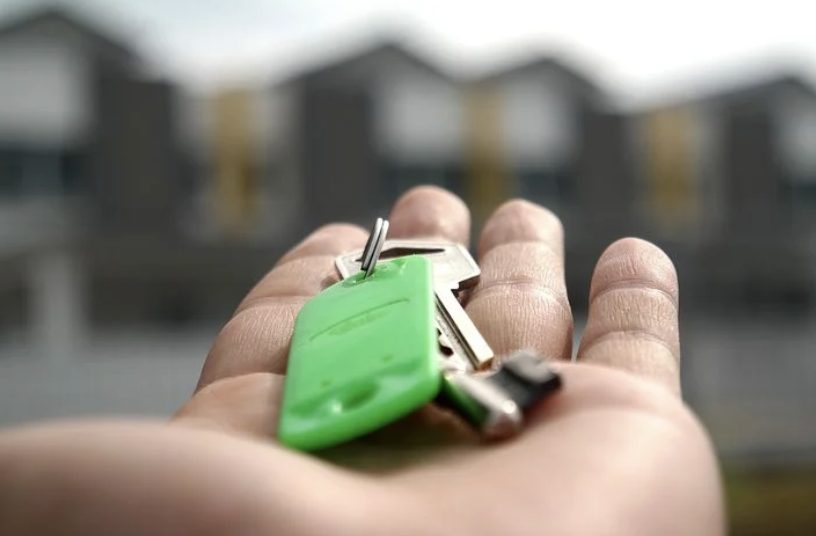What’s the difference between leasehold and freehold property?
Simply put, a person only owns a leasehold property for a fixed period of time. Ownership of the property returns to the ‘freeholder’ or landlord once the lease ends.
A freehold property you own, along with the land it is built on, for an unlimited amount of time.
Leasehold properties explained
Unlike with a freehold, leasehold properties only belong to you for a fixed amount of time.
This doesn’t include the land it is built on, which is owned by the ‘freeholder’ or landlord.
When you enter into a legal agreement with the freeholder, referred to as the ‘lease’, this will record how many years you own the property for, with ownership returning to the landlord upon the completion of the lease period.
When purchasing the lease to a property, you need to be aware of potential ground rent payments, as well as any service charges or maintenance costs for communal areas, such as gardens, hallways, and lifts. You also need to be aware of any restrictions in place, such as whether or not pets are allowed.
Leases can also contain covenants preventing building extensions on the land, or alterations to the property.
As the leaseholder, you can ask to buy the freehold from the landlord at any time.
If it’s a flat, you will need to buy a share of the freehold. However, there is no obligation for the freeholder to sell.
Freehold properties explained
‘Freehold’ means you own the property and the land it is built on outright for an unlimited period of time.
If you buy a freehold property you are solely responsible for maintaining your property and land, and any costs associated with the maintenance and upkeep.
If you are selling a freehold property you need to consider the costs, including estate agents fees, energy certification, and legal fees for solicitors and conveyancers.
Is one easier to sell than the other?
Leasehold Selling – Pros
- Long leases.Leasehold properties with a long lease remaining of up to 999 years are effectively as good as a freehold, as there is no chance the lease will expire within the leaseholder’s lifetime.
- Higher value.Leasehold properties with a considerable length of lease remaining of over 100 years can add thousands of pounds to the market value. It can be worth exercising your statutory rights to extend the lease before you sell, if you are in a position to do so.
- Peace of mind.Selling a flat with a leasehold assures the buyer that rights and responsibilities are in place for all flat owners and the landlord or management firm. This means the property will be insured and communal areas maintained, while also restricting certain leaseholder behaviours, such as any anti-social issues.
Leasehold Selling – Cons
- Short leases.Leasehold properties with a shorter lease of 80 years or under can be harder to sell. Lenders may be unwilling to offer buyers a mortgage on it. Shorter leases can also knock thousands of pounds off the value of the property. So it is important to extend your lease or even buy the freehold if possible before selling.
- Ground rent and service charges.Leasehold properties can be harder to sell if ground rents or service charges are onerous. Buyers may not be able to afford extra costs on top of mortgage payments if ground rents or service charges are high. Some ground rents can increase significantly over time, which can put off potential buyers.
- Restrictions.Properties with restrictive covenants in the leasehold can put off potential buyers. These may include no pets, no subletting, no building in a certain area of the land, or no making changes to the property without permission.
- Complexities.Statistics show that nearly a third of leasehold sales fall through because they often require more complex legal work, including reviewing lease terms, accounts, and resolving disputes.
Freehold Selling – Pros
- Higher value.Freehold properties tend to be worth more than leasehold properties because you are selling the property and the land it is built on. So you can potentially make more money from a sale.
- No rents or charges.Freehold properties are often more attractive buyers because they don’t come with extra fees from ground rent or service charges.
- Quicker to sell.The sale process is often much quicker and easier with freehold properties than leasehold, as often more complex legal work and dispute resolution are required.
Freehold Selling – Cons
- Maintenance costs.When it comes time to sell, any maintenance costs, repairs and decoration needed on the property will come out of your pocket.
Always check the length of the lease
The main difference between leasehold and freehold is that leaseholders only own the property for a defined period – and not the land it is built on. Whereas freeholders own both the land and the property outright, in perpetuity.
When you are selling leasehold properties you need to be aware of the length of lease remaining on the property. If it is 80 years or below, this is considered short. This may significantly impact the value of the property, and also the chances of selling it, as it is harder for buyers to get a mortgage agreed on a leasehold property where the lease is getting closer to expiry.
For further reading and advice, you may also enjoy:

